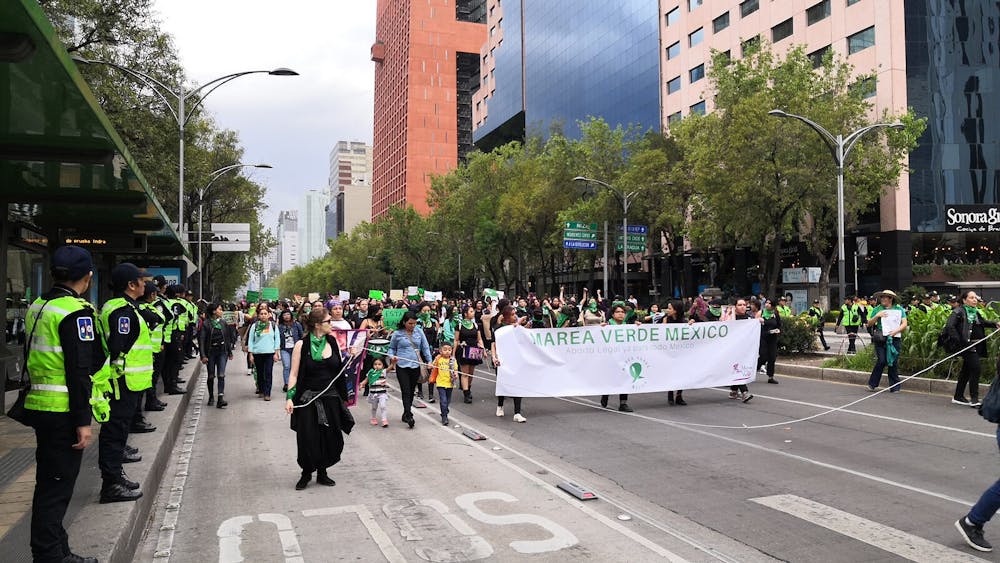By Leah Cruz
Staff Writer
Mexico’s Supreme Court recently decriminalized abortion nationwide, ruling that the previous restrictions on abortion access violated the constitutional rights of women. The ruling officially removed abortion from the nation’s federal penal code.
The ruling obligates that federal institutions and agencies provide immediate access to abortions for those who request it. It does not, however, require each state to decriminalize the procedure.
“No woman or pregnant person, nor any health worker will be able to be punished for abortion,” the Information Group for Chosen Reproduction, a non-government organization, said in a statement.
Mexico City was the first state in the country to decriminalize abortion in 2007. A prior ruling two years ago in Coahuila set off a domino effect for state-by-state decriminalization. Just last week, Aguascalientes became the 12th state to legalize the procedure. There are still 20 Mexican states where abortion is a crime, according to The New York Times.
The new Mexico legislation allows women to legally seek abortions through federal hospitals and clinics even in states where it is a crime, according to AP News.
In an abortion-rights movement known as the “Green Wave,” activists across Latin America have fought tirelessly for women’s reproductive rights and have finally seen the fruits of their labor.
"Today is a day of victory and justice for Mexican women," Mexico's National Institute for Women commented on X, formerly known as Twitter.
The Court’s decision comes as many other Latin American countries are taking strides to decriminalize abortion nationwide. Argentina legalized the procedure in 2020, and in 2022, Colombia followed suit, according to The New York Times.
As thousands celebrated the ruling of the court, many conservatives and religious citizens of the Catholic country opposed the court’s ruling. Director of the Civil Association for the Rights of the Conceived, Irma Barrientos, refers to the U.S. Supreme Court overturn of Roe v. Wade to express her resistance to the ruling.
"We're not going to stop," said Barrientos. "Let's remember what happened in the United States. After 40 years, the Supreme Court reversed its abortion decision, and we're not going to stop until Mexico guarantees the right to life from the moment of conception."
In contrast with the expansion of abortion access across Latin America are the ever-increasing restrictions on reproductive rights in the United States.
When the Supreme Court overturned Roe v. Wade in June 2022, abortion rights in many U.S. states were rolled back immediately and bans on the procedure were put into place, according to NPR. While abortion remains legal in several states, issues surrounding expanding abortion services to travelers from states where it is illegal make it difficult for those patients. State-border restrictions in Texas, for example, provide grounds for a civil lawsuit against anyone who “aids or abets the performance or inducement of abortion,” according to PBS.
Mexico’s court ruling opens doors for those in the United States seeking to get an abortion if they are in a position where it is illegal for them to do so in their own states. The founder of Mexican feminist organization Las Libras, Veronica Cruz, noted an inundation of women from the U.S. seeking abortion pills after Roe v. Wade was overturned, according to Reuters.
"It opens more possibilities. They will have even more options in Mexico," said Cruz.
While Mexico’s Supreme Court ruling that decriminalizes abortion nationwide is a huge step toward protecting women’s reproductive rights, it will take time to see the effects of the ruling and to see it applied in every part of the country.







